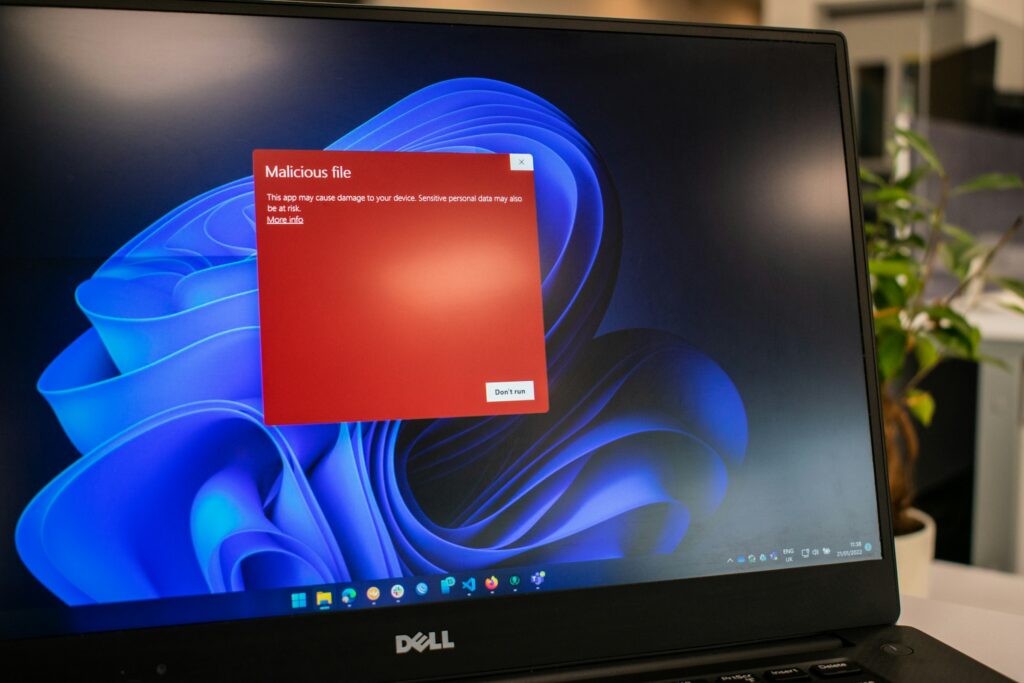The safeguarding of government chat messages is moving into the public eye. A judge in Washington recently ordered that all messages from an explosive Trump administration signal group chat must be preserved. This case shows the urgency of the Government chat backup and raises questions about data protection.
Encrypted communication plays a central role in modern government work. It enables information to be exchanged quickly and confidentially. The challenge is to ensure the security of these chats while at the same time complying with legal requirements.
The current situation illustrates how important it is to develop clear guidelines for dealing with government chats. It is about protecting sensitive information and maintaining transparency at the same time. The balance between data protection and the public interest is being put to the test.
Important findings
- Judge's order to secure government chats
- The importance of encrypted communication in politics
- Challenges in the data protection of chat messages
- Need for clear guidelines for government chats
- Tension between information security and transparency
Background to the government chat
The development of secure messaging platforms for public authorities has become increasingly important in Germany in recent years. The Cybersecurity for public authorities is central to protecting sensitive data and enabling efficient communication.
Development and use in Germany
The German government has introduced an end-to-end encrypted messenger service called "Wire Bund". This is divided into three pillars that cover different protection requirements. Pillar 1 even enables communication up to the classification level "Classified - for official use only".
Another example of Secure messaging platforms is "SIMSme Business" from Deutsche Post. This messenger meets the legal requirements of public authorities and offers features such as end-to-end encryption and a server location in Germany.
Relevance for public administration
BWI GmbH has developed the "BundesMessenger", which is based on the open source software "Element". This solution offers permanent end-to-end encryption and an integrated virus scanner. The Cybersecurity for public authorities is further strengthened by operating on our own IT infrastructure.
Deutsche Telekom offers another secure platform with its "BundesMessenger-as-a-Service". This enables text, voice, video and file communication in a closed network for the public administration and underlines the growing importance of secure messaging platforms in the everyday life of public authorities.
Security requirements for government chats
The security of government chats is crucial for the Data protection for government data. At a time when digital communication is becoming increasingly important, strict measures must be taken to protect sensitive information.
Encryption technologies
Modern encryption technologies form the backbone of secure government chats. End-to-end encryption prevents unauthorized access to messages. The However, the EU Commission is planning chat controlswhich enables access to Encrypted communication should be made possible. This poses a challenge for the Digital sovereignty represent.
Access controls and authentication
Strict access controls and robust authentication methods are essential. Multi-level authentication and biometric procedures increase security. The German Informatics Society emphasizes the importance of Europe as an encryption location for the protection of citizen sovereignty.
Choosing the right technologies is crucial for the Digital sovereignty. Self-sovereign digital identities give citizens control over their data and strengthen data sovereignty. Governments must carefully balance security and privacy to maintain citizens' trust.
Risks with unsecured chats
Unsecured chats in government circles pose considerable risks for the Confidential communication. The recent past shows how quickly sensitive information can fall into the wrong hands.
Potential data leaks
The Trump administration provided a particularly alarming example of the risks of unsecured communication. The US Department of Justice secretly obtained phone data from over 100 Apple user accounts, including leading opposition politicians and journalists. This incident illustrates how important tap-proof messenger to protect privacy.
Impact on national security
The consequences of data leaks can be devastating. A hacker attack on the CIA in 2017 led to the publication of secret documents on espionage activities. This not only jeopardized ongoing operations, but also national security. Similarly worrying were Chinese hacking attacks on US politicians in the run-up to the 2024 elections, in which encrypted audio data was intercepted, underlining the urgency of secure communication channels.
Even seemingly harmless information can become a security risk in the wrong hands. The attack on the Jones Day law firm in 2021 shows how important it is to protect all data. Although no direct government information was affected, the incident highlights the need for comprehensive security measures for Confidential communication.
Legal framework for data protection
The legal aspects of data security in government chats are becoming increasingly important. In Germany, strict regulations apply to the handling of sensitive information exchanged in messenger services.
GDPR and its significance
The General Data Protection Regulation (GDPR) plays a central role in the processing of government data. It places high demands on the Legal compliance and the protection personal data. Federal authorities must be particularly careful when it comes to using messenger services.
The Federal Data Protection Commissioner Ulrich Kelber has clarified that WhatsApp is not permitted for federal authorities. The reason: the service violates the GDPR by transmitting metadata to Facebook. As an alternative, Kelber recommends messengers such as Signal, which Cryptographic protocols with end-to-end encryption.
Relevant laws in Germany
In addition to the GDPR, the Freedom of Information Act plays an important role. It states that chat messages from members of the government are considered official information and may not simply be deleted. They must be archived and made accessible to the public.
| Law | Requirement | Implementation |
|---|---|---|
| GDPR | Protection of personal data | Use secure messenger |
| Freedom of Information Act | Archiving of government chats | Documentation and storage |
| New draft law (2023) | Restricting access to chats | Protection of privacy |
A new draft law by Federal Minister of Justice Marco Buschmann aims to limit access to chats by law enforcement agencies. This underlines the efforts to find a balance between security and privacy while at the same time Legal compliance to ensure that
Measures to secure government chats
The Government chat backup is becoming increasingly important in the face of growing cyberattacks on public institutions. The German Federal Office for Information Security (BSI) warns of a dynamic threat landscape. Comprehensive measures are required to meet these challenges.
Training for employees
Regular training is essential to ensure that the Safety awareness of employees to sharpen their skills. These training sessions should cover the following aspects:
- Recognizing phishing attempts
- Secure password practices
- Dealing with confidential information
- Reporting of security incidents
Technical solutions and software
For the Cybersecurity for public authorities various technical solutions are available:
| Solution | Advantages | Field of application |
|---|---|---|
| Wire | End-to-end encryption, own servers | Federal Chancellery |
| Stashcat | Secure mobile communication | German Armed Forces |
| Rocket.chat | Open source, self-hosting possible | Authorities in general |
The implementation of these solutions requires careful planning to ensure data sovereignty, compliance and integration with existing systems. Zscaler also offers a Zero Trust Exchange™ platform that enables secure information exchange and protects against modern cyber threats.
The impact of cyber attacks
Government systems are often the target of cyber attacks. These attacks can compromise communication channels such as chat systems. Encrypted communication and Secure messaging platforms are crucial to warding off such threats.
Common attack methods
Malware is one of the most common methods of attack. These include ransomware, Trojans and spyware. These can steal or destroy data. One example is the WannaCry worm from 2017, which infected computers worldwide.
Another example is the cyberattack on Estonia in 2007, where government bodies were paralyzed by denial-of-service attacks. This shows how vulnerable state communication infrastructures can be.

Prevention strategies
Encrypted communication protects against eavesdropping and manipulation. Secure messaging platforms such as Signal use end-to-end encryption. They prevent unauthorized access through authentication and access controls.
Governments should take comprehensive protective measures:
- Regular security updates
- Closing security gaps
- Implementation of firewalls
- Training of employees
- Development of emergency plans
One example of successful defense is the discovery of a "kill switch" in the WannaCry worm. This helped to contain the spread of the attack.
| Attack method | Protective measure |
|---|---|
| Malware | Antivirus software, firewalls |
| Phishing | Employee training, e-mail filters |
| DDoS attacks | Traffic analysis, load distribution |
Best practices for the use of government chats
Secure government chats are essential for the privacy of government data. To Confidential communication clear guidelines must be followed.
Communication and transparency
Government employees should always bear in mind that their chats may contain sensitive information. Clear rules for the use of chat systems are important. This includes which topics may be discussed and how to share data securely.
- Use encryption for all messages
- Do not use private devices for government chats
- Offer regular training on safe use
Regular safety checks
Protecting confidential communication requires constant vigilance. Regular security checks help to identify and eliminate vulnerabilities at an early stage.
| Measure | Frequency | Responsible |
|---|---|---|
| Penetration test | Quarterly | IT security team |
| Safety audit | Half-yearly | External auditor |
| Software update | Monthly | IT department |
These best practices strengthen the Data protection for government data and secure confidential communication. Regular adjustments to new threats are essential.
The role of third-party providers
Third-party providers play a crucial role in securing government chats. Choosing the right platform is crucial for the Digital sovereignty of authorities is of great importance.
Choosing the right platform
The Federal Commissioner for Data Protection and Freedom of Information recommends messenger services that guarantee data protection and privacy. In-house developments such as Wire Bund and BundesMessenger were specially designed for federal authorities. These solutions enable Secure communication and strengthen digital sovereignty.

For critical meetings, control over digital infrastructures essential. On-premises or private cloud solutions offer full data control here. Wire, for example, provides governments with complete digital sovereignty through on-premises deployment.
Compliance and security certificates
When choosing a platform, technical aspects such as end-to-end encryption are crucial. Providers must comply with the GDPR and have transparent security certificates. The Legal compliance is a key aspect in the selection of third-party providers for government chats.
The decision between in-house development and commercial products depends on costs, flexibility and data control.
Lock-in effects can be avoided by choosing regional IT providers. This increases flexibility and strengthens the digital independence of public administration.
Future developments in the secure chat area
The world of cryptographic protocols is evolving rapidly. New technologies promise to raise the security of government chats to a new level.
Technological innovations
Post-quantum cryptography is at the heart of the development of tap-proof messengers. Apple introduces the PQ3 protocol in iOS 17.4, which protects iMessage against quantum computer attacks. Signal is the first messenger to integrate the PQXDH protocol, based on the Kyber algorithm.
The US NIST has standardized four post-quantum cryptography methods. Three of them were developed by German researchers. These advances are aimed at, digital communication securely even in the era of quantum computers.
Political discussions and trends
The standardization of security protocols is being driven forward internationally. Governments around the world are recognizing the need to protect their communications from future threats. The trend is towards hybrid encryption methods that combine classic and quantum-resistant algorithms.
The requirements for tap-proof messenger are constantly increasing. In addition to encryption, aspects such as user-friendliness and interoperability are becoming increasingly important. Cryptographic protocols must not only be secure, but also practical to use in everyday government life.
Conclusion: The urgency of data backup
Securing government chats is a critical task for the modern administration. The Federal Ministry of the Interior's cyber security agenda emphasizes the importance of protecting digital communication infrastructures. This priority underlines the necessity, Government chat backup as a central element of cyber security for public authorities.
Summary of the challenges
A survey of 77 German authorities shows that secure data transfer tools are not yet used across the board. The reasons for this are often a lack of resources and a lack of risk awareness. This gap in cyber security for authorities poses a serious threat and requires urgent attention.
Appeal to those responsible
The IT Security Act 2.0 obliges operators to critical infrastructures for the creation of emergency plans. This highlights the responsibility of leaders to take government chat security seriously. It is critical that government agencies proactively invest in cybersecurity to ensure the integrity of their communications and minimize potential risks.
